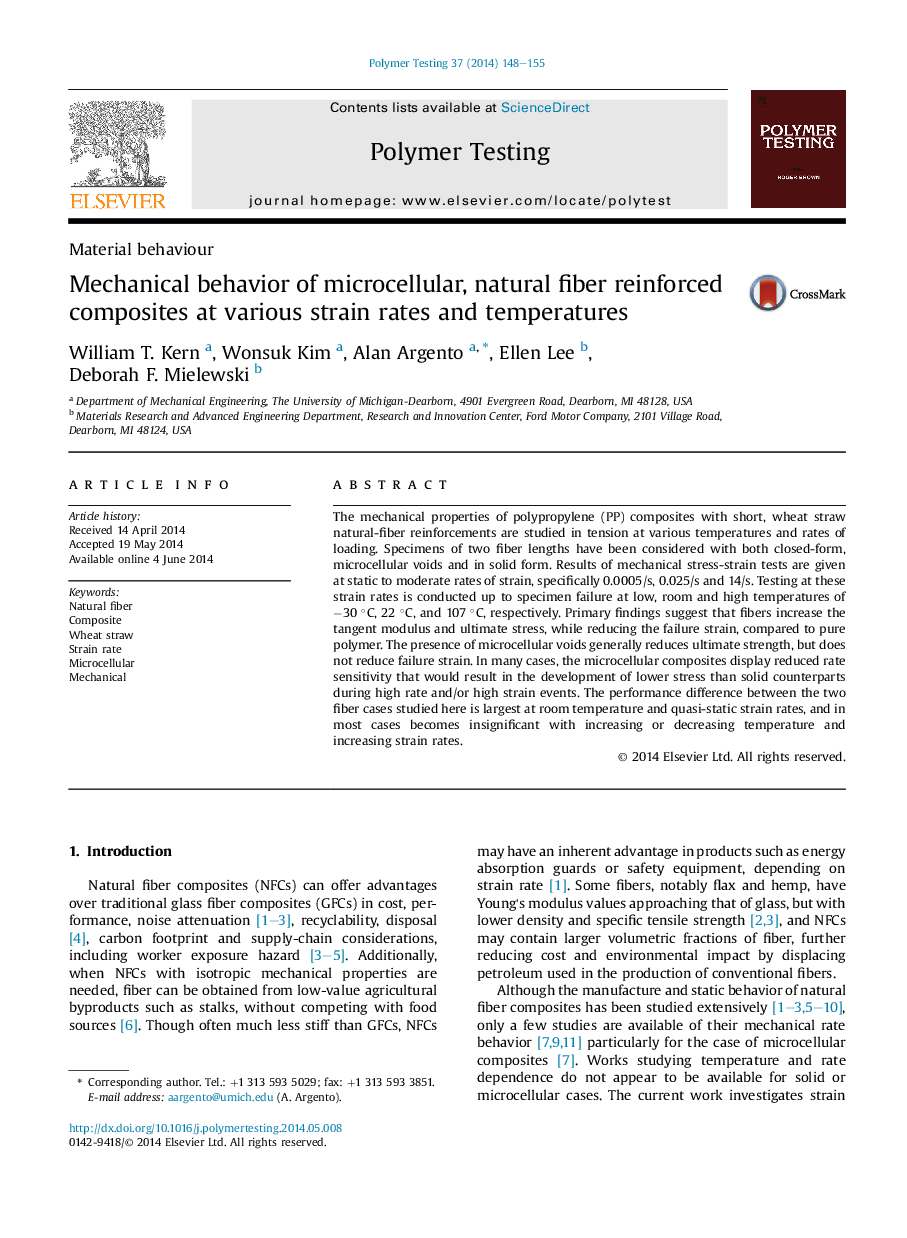| Article ID | Journal | Published Year | Pages | File Type |
|---|---|---|---|---|
| 5206397 | Polymer Testing | 2014 | 8 Pages |
Abstract
The mechanical properties of polypropylene (PP) composites with short, wheat straw natural-fiber reinforcements are studied in tension at various temperatures and rates of loading. Specimens of two fiber lengths have been considered with both closed-form, microcellular voids and in solid form. Results of mechanical stress-strain tests are given at static to moderate rates of strain, specifically 0.0005/s, 0.025/s and 14/s. Testing at these strain rates is conducted up to specimen failure at low, room and high temperatures of â30 °C, 22 °C, and 107 °C, respectively. Primary findings suggest that fibers increase the tangent modulus and ultimate stress, while reducing the failure strain, compared to pure polymer. The presence of microcellular voids generally reduces ultimate strength, but does not reduce failure strain. In many cases, the microcellular composites display reduced rate sensitivity that would result in the development of lower stress than solid counterparts during high rate and/or high strain events. The performance difference between the two fiber cases studied here is largest at room temperature and quasi-static strain rates, and in most cases becomes insignificant with increasing or decreasing temperature and increasing strain rates.
Related Topics
Physical Sciences and Engineering
Chemistry
Organic Chemistry
Authors
William T. Kern, Wonsuk Kim, Alan Argento, Ellen Lee, Deborah F. Mielewski,
